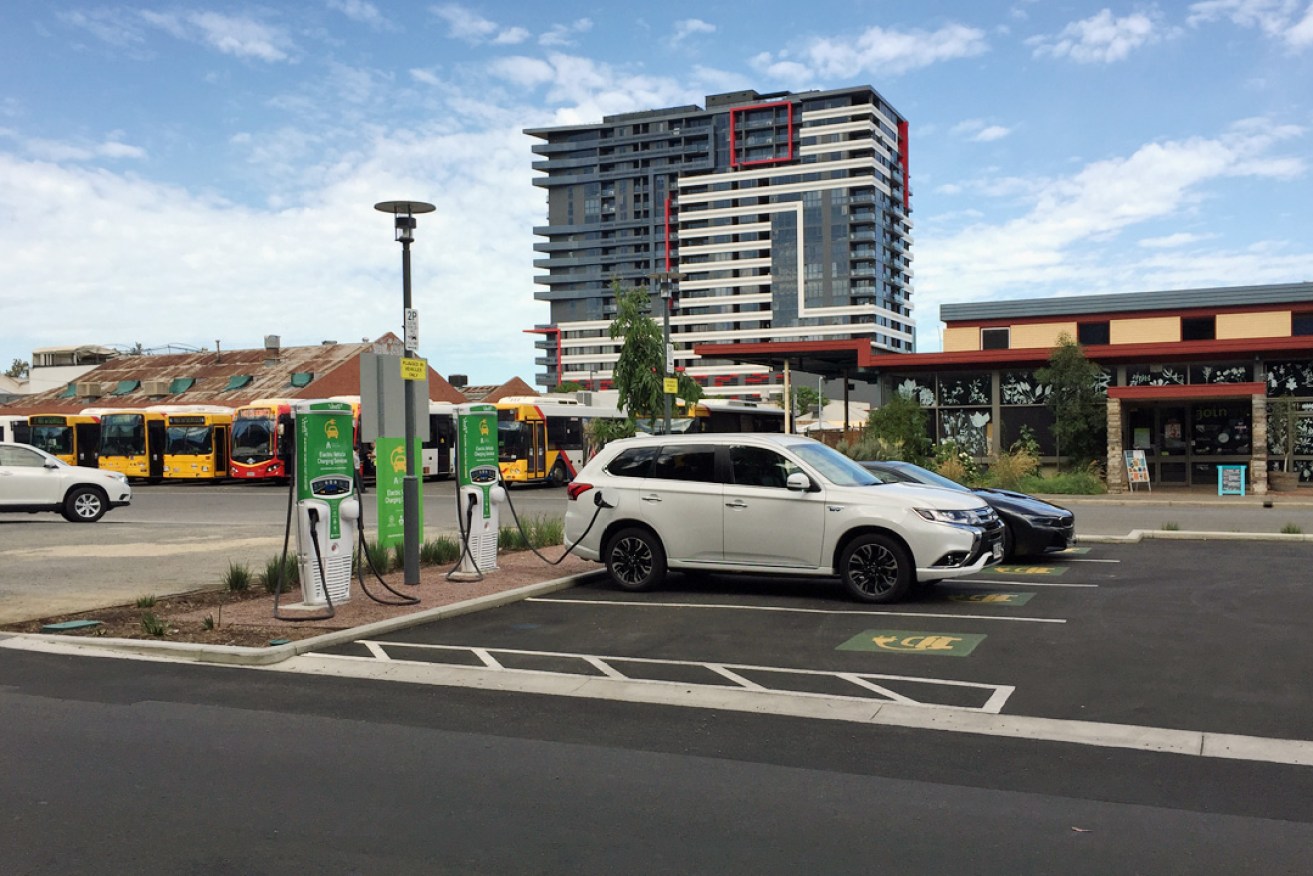Call for SA to consider banning petrol car sales
South Australia has been called upon to consider a ban on the sale of new petrol vehicles by 2035, after the ACT became the first Australian jurisdiction to do so.

Electric vehicles at a charging station in the CBD. Photo: Bension Siebert / InDaily
The ACT last week committed to align with the European Union’s goal to ban the sale of new petrol and diesel cars from 2035.
Under the plan, the ACT will ban the sale of internal combustion engine vehicles from 2035, but owners of petrol and diesel vehicles will still be able to drive their car or sell it secondhand.
The target is in line with the plans of major vehicle manufacturers, with Ford, Mercedes-Benz, General Motors, Volvo, Jaguar Land Rover, and BYD among those having pledged to phase out sales of new fossil-fuel vehicles in leading markets by 2035, and worldwide by 2040.
Flinders University transport systems expert Professor Rocco Zito told InDaily the goal was a “great initiative” and could potentially work for South Australia — under the proviso that authorities made sure it didn’t leave people unable to afford suitable transport.
“The ACT are showing real leadership on this,” he said.
“It would be good for South Australia to pursue, but I would like to see studies done on what impacts that will have, to make sure people have mobility options if they can’t afford an electric car.”
Zito said the 2035 date is appropriate — provided electric and hydrogen vehicles have reached price parity with their petrol equivalents, and that suitable public transport alternatives are deployed.
“Because if there are people who can’t afford electric vehicles, well what does that mean for their access to transport — in Canberra it is mostly public servants who are employed, so the median income is less of an issue there,” he said.
The ACT plan includes policies to support those making the switch to electric vehicles, including interest-free loans, no registration fees and stamp duty exemptions.
Zito said the rollout of electric vehicle charging infrastructure in South Australia to facilitate such a shift wasn’t as important as making sure transport was affordable.
“We actually don’t need to roll out too many more destination chargers at shopping centres, theatres, and so on, because once people get their electric vehicles the house is where they do most the recharging,” he said.
“Then there’s the interesting possibilities in how these vehicles with big batteries while parked at home can be used to store and give power back to households.”
Australia Institute research has found two thirds of Australians supported an end to petrol car sales by 2035.
Norway has one of the most ambitious targets, aiming to ban new petrol vehicles by 2025 — and is on a path to achieving it even sooner.
The Intergovernmental Panel on Climate Change has said that all new vehicles worldwide need to be zero-emissions by 2035 to meet the targets of the Paris climate accord.
At the Glasgow climate conference in 2021, 30 countries committed to phase out new gasoline and diesel-powered vehicles by 2040 at the latest.
Countries to sign the pledge include India, Canada, Mexico and the United Kingdom.




